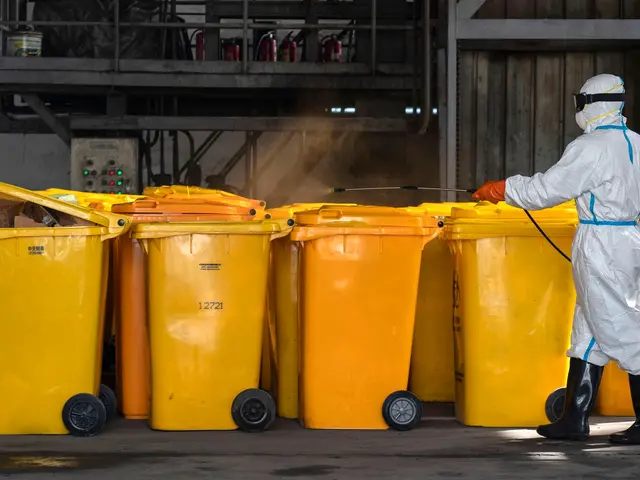Mei Gang is feeling less stressed as his workload has reduced over the past week. He also feels relieved that of the 50 employees he has on duty, no one has been infected with the novel coronavirus.
Mei is the general manager of Yunfeng Environmental Technology, a local industrial waste treatment plant in the suburban area of Wuhan, the capital of the hardest-hit Hubei Province in central China.
As the epidemic broke out in the city, the company temporarily transformed their process and shouldered the task of bringing dozens of tonnes of medical waste to their final destination -- hot flames.
The amount of medical waste produced daily in Wuhan quintuplicated to a peak of around 250 tonnes since the outbreak, statistics from the city's pollution prevention management center for radiation and solid hazardous wastes showed.
As a Wuhan native, Mei was duty-bound to help when environmental protection authorities expected to raise the disposal capacity of clinical waste by taking in private enterprises.
Waste disinfection and protection of operating staff were the major challenges that Mei faced in his mission during the critical period.
"We have no experience in dealing with infectious waste, which made us a bit uneasy," he said.
To ensure the safety of Yunfeng employees, experts from municipal health commission made a visit to the company on Jan. 23 and 24, providing guidance on disinfection and disposal processes, drawing up lanes dedicated for medical refuse wagons, as well as showing employees how to put on and take off protective clothing.
The company also received a sufficient amount of goggles, protective suits, gloves, disinfectants, sprayers and other supplies from the municipal environmental protection bureau.
After making adjustments to the feeding system, incineration temperatures, speed of bucket elevators and oxygen content, Yunfeng achieved a daily maximum disposal capacity of 600 buckets with only 40 percent of its employees working 18 hours a day in three shifts.
"Yunfeng treated about 13 tonnes of medical waste every day from six districts in Wuhan," Mei said, noting that it is equivalent to the amount in a prefecture-level city with a population of more than 3 million under normal circumstances.
The temporarily requisitioned company has joined the Wuhan Hanshi Environmental Engineering Co., the only company authorized to dispose of medical waste in the city, running at full capacity to deal with an aggregate of 50 tonnes of medical waste.
According to Wuhan's pollution prevention management center for radiation and solid hazardous waste, disposal facilities with a designed capacity of 24 tonnes a day have been set up in the city's two makeshift hospitals Huoshenshan and Leishenshan.
Two domestic waste incineration enterprises were called up on Feb. 19 to treat medical waste in accordance with relevant standards, with 120 tonnes of medical waste incinerated on a daily basis.
The city also raced against time to build an emergency disposal center of medical waste, which began its pilot run on Feb. 22 with a daily capacity of 30 tonnes in full-load operation.
A mobile incinerator was deployed to the Wuchang Hongshan Stadium, which was among the first three public venues to be converted into a temporary hospital and is now closed.
The hospital used to produce about three tonnes of medical waste every single day when occupancy rate was at the peak, and all of it could be safely disposed of nearby, said Teng Zenggui with the Wuchang suboffice of the municipal environmental protection bureau.
The medical waste mainly consisted of articles used by patients and medics, including tableware, domestic garbage, masks and protective clothing. Bedding, beds and other items will also be destroyed after patients are discharged from the hospitals.
"To reduce the risk of spreading the virus, the medical waste will be disinfected twice after being sealed in bags and put into garbage cans, which will be placed in a temporary storeroom and disinfected for the third time after incineration," Zeng said.
 简体中文
简体中文

